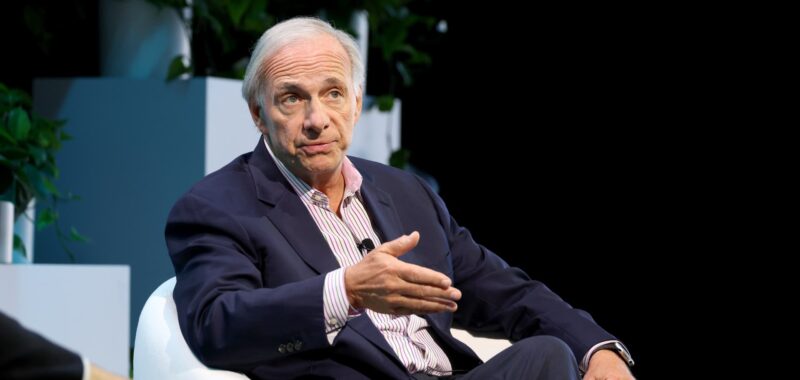Billionaire investor Ray Dalio thinks it’s still tricky to invest in China right now as Beijing may be seeking to structurally move the country away from capitalism. The founder of Bridgewater Associates, one of the world’s largest hedge funds, said investors should take a nuanced and cautious approach to investing in the developing region as it undergoes a regime shift. “There’s something big going on that they had a debt crisis and they also had a capitalism crisis. Are they ⦠favorable to capitalism as we knew it before? I do not believe they are in the same way,” Dalio said Tuesday at the Greenwich Economic Forum in Greenwich, Conn. There are structural changes that are taking place that have to do with the government‘s desire to retain complete control, and that affects the economy,” he added. His comments came as excitement over investing in China has recently reignited. The government signaled a flood of stimulus measures in a bid to revive growth and avoid a deep slump in the world’s second largest economy. These policy steps included interest rate cuts and reducing the amount of cash banks need to hold, known as the reserve requirement ratio. However, investors were disappointed Tuesday as Chinese officials fell short of announcing any concrete stimulus plans when laying out further actions to boost economy during a highly-anticipated press conference. The rally in Chinese markets lost steam with the CSI 300 blue-chip index cutting gains to a 5% rise after skyrocketing over 10% earlier Tuesday. “I would say don’t watch [the Chinese markets] day by day,” Dalio said. Hedge funds have been piling into beaten-down Chinese stocks, propelled by hopes for more stimulus. David Tepper of Appaloosa Management told CNBC recently that he’s buying “everything” related to China because of the latest government support. The high-profile investor even said he is raising his usual allocation limit and is not hedging his big China bet. In the past few years, Beijing introduced stricter regulations on its domestic technology sector in a bid to rein in the power of some of its biggest companies. In the wide-ranging interview, Dalio also commented on the Federal Reserve’s path of easing monetary policy. He said he doesn’t expected big rate cuts as the economy remains in a solid shape. “I don’t think you’re going to get significant cuts in rates. I think the economy by and large right now itself is in relatively good balance,” he said.

